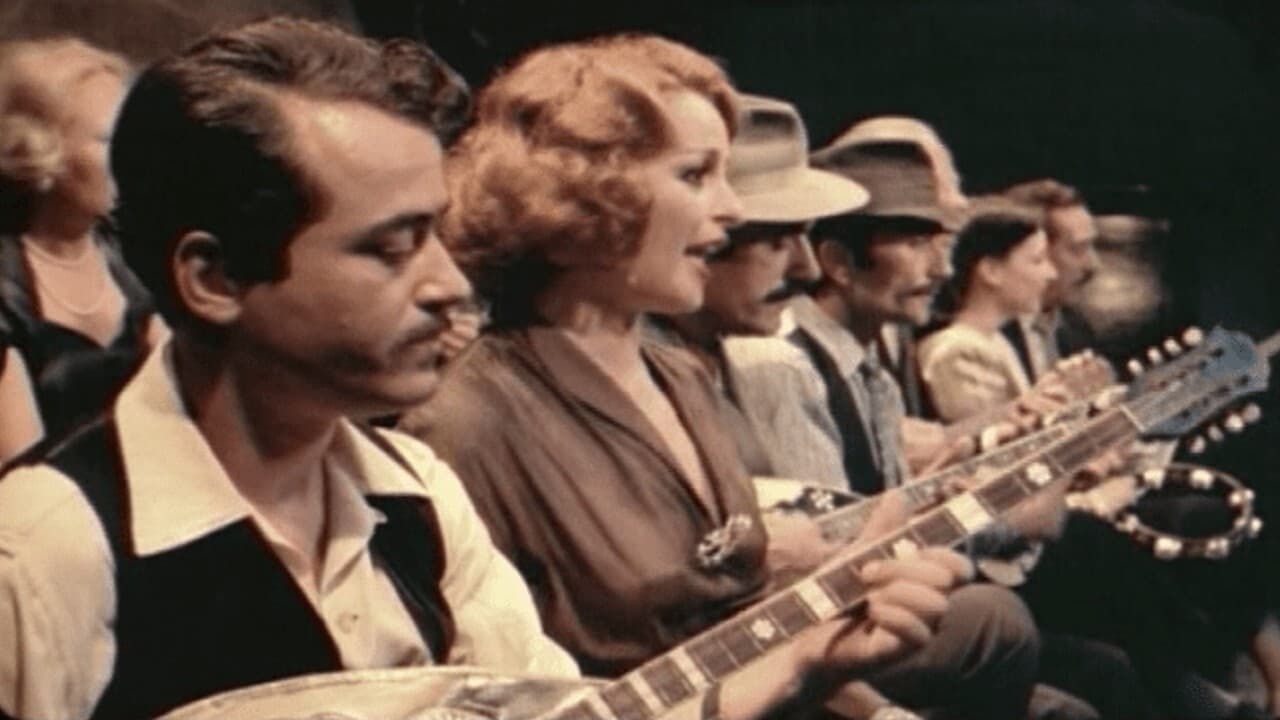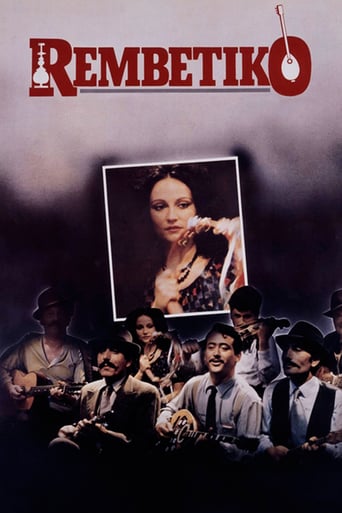



Boring
Instead, you get a movie that's enjoyable enough, but leaves you feeling like it could have been much, much more.
View MoreMostly, the movie is committed to the value of a good time.
View MoreThere are moments in this movie where the great movie it could've been peek out... They're fleeting, here, but they're worth savoring, and they happen often enough to make it worth your while.
View MoreThe history underpinning this Film is the one that makes this film really unique. It is very hard for this film to be translated and make it understandable by the majority of people that can't speak Greek and may not feel the story. The story begins around 1920 in the coastal area of (now days)Turkey. Between the war most of the Greeks owned this area, however most of them were killed (not as soldiers but as unarmed people)and all the others were sent to Greece were they had to start their life from zero. The passion and the lyrics of the music as well is what makes this film one of the best in Greece. Rempetiko is this kind of music that was carried in main Greece by them.
View MoreI was very pleased to find 'Rembetiko' on DVD after so many years! Back then, it only was on for a short time at my local cinema/art-house (Rotterdam, Holland)/ right after, I was *very* impressed and checked for another view, but it was the very last one performance, alas. Since then, this movie became some sort of a myth in my memory. After seeing the film after almost 25 years it feels very different... (now I'm older I know more in what way Greece also suffered during WWII/ and their drama is still not very well known in Europe, they kept the horror more quiet, IMO). So this knowledge was an extra for me in 2007.Therefore I disagree with the former poster "dionysianartist", the emphasis on the Nazi-period gives the movie a wonderful twist. Perhaps this way, it also returns the feeling to the true blues of 1920's Rembetica.My DVD came with these subtitles; *Greek *English *French *Spanish *Italian *German *Turkish (No further extra's).Check it out; great film, with much of the Greek sphere and feelings involved.John.
View Moremy first experience of this film was its soundtrack, which my dad had on tape, and had played every now and then. FANTASTIC SOUNDTRACK, XARCHAKOS IS A Genius. The music in this film captures the mood of the real rebetiko perfectly, but unfortunately i have to say that after hearing this soundtrack, i really did expect a lot more than i saw in the film itself. some of the acting was OK, including leonardou's, but much of the filming and editing was heavy handed; the over-saturated colour of the film was also too much for me, and the German occupation either had too much focus for its ultimate importance, or was not developed enough to have the importance that might have been intended. The reason that i haven't totally scrapped this film is for a few reasons. even though the film is not as smoothly cohesive as it could have been, and was a bit inconsistent, there were some very well produced "moments"; individual parts of the film where everything worked perfectly (probably my favorite part was the final scene. in my opinion, this is the only part of the film which really cooperated with the soundtrack. i got chills down my spine). Another thing is that the actors playing smaller characters dd a better job of acting than the protagonist, for example, the old man who dances the slow zeibekiko (and by the way PJA, it's zeibeKIKO, not zeibeTIKO.)
View MoreIn Greece, Rembetiko had always been known as the music of the outcasts. Even the dance that is normally associated with it, (Zeimbetiko), occasionally looks like some kind of ritualistic act of defiance, to those ancient Greek deities, who for their own amusement, are constantly interfering with all our lives, creating Tragedy, Comedy, Pathos and Irony. It had traditionally been associated with Greek refugees from the west coast of Anatolia, who for various reasons, had become dispossessed and were now confined to living their lives under the lower step of the Greek urban social order, engaged in a life style that was considered borderline at best, in more ways then one. The time depicted in this film, covers a period in Athens from about 1922 -1958. This was a time of tremendous transition and instability for the entire Greek nation. The film begins with a montage of what the Greeks have called the Asia Minor Disaster, which was basically a military campaign (waged with rival nation Turkey) gone wrong, and which resulted in a population exchange with their nemesis nation, that increased the population in Greece by approximately 25% almost overnight, in 1923. Most of them ending up in Athens. In was in these overcrowded and economically and spiritually destitute conditions during the1930's, that the Rembetiko genre of music reached its height in popularity. After that, came a World War and Nazi occupation in 1940, and then a tragic Civil War in 1948. On to even more economic and political instability thru-out the 1950's.In "Rembetiko the movie" veteran Director Costas Ferris, much akin to a masterpainter, uses these historical events, by either showing or suggesting them, to recreate a background of a social order, that always seems to be on the edge of chaos and collapse. Scenery, costumes, period piece trivia etc. are all well executed and are quite successful in recreating a realistic and believable visual context for the period. The viewer will have little difficulty in the area movie pundits love to call "the suspension of disbelief". Winner of the prestigious Silver Bear award in 1984, and without question, one of the most absorbing and provocative films ever to come out of the Hellenic Republic, this is a story that works on many levels, from the superficially romantic and absurd to the exceedingly tragic and disturbingly profound. This is especially true if one is familiar with the history and urban culture of contemporary Greece, during the early and middle years of this century. This 107 minute Hellenic "Once Upon a Time" for adults, is both controversial and unforgettable. The basic storyline may seem somewhat simplistic, but that simplicity is deceptive. There is a great deal going on here that is not always plainly evident. Some of the events portrayed, are based upon the actual life experience of one Marika Ninou, who in reality, had in fact been a well known Rebetisis from that period. A Rebetisis today, is simply a term used for a female singer of Greek Rebetiko music. However during the period in question, being called a Rebetisis had a connotation, that was somewhat more pejorative in nature. The film follows the life experiences of the primary character, also named Marika, from the day of her unwanted birth and exceedingly difficult childhood, to her rise and eventual decline, as a popular Rebetisis, while still only in her mid thirties. She is essentially a very complex character, who is driven by a blind ambition to succeed in her singing career, while simultaneously being sustained through every ordeal in her life, by nothing more, then an enormous strength of character along with an equally strong determination and will to survive. However, in her quest to the top, she becomes increasingly self centered, detached and alienated, as both personal relationships and the overwhelming external events surrounding and affecting her life, spin quickly out of control. Nevertheless finding a deep rooted empathy for her came easy and naturally. In the beginning of the film, Marika is a young women in search of artistic recognition for her music. By the end of the film, ( in a final scene, that can only best be described as quintessentially Greek ), she is, in a very curious and symbolic way, redeemed by it ! Sortiria Leonardou gives a Tour de Force performance as Marika, while the glorious and haunting original Rembetiko compositions of Stavros Xarhakos, permeate the entire production. This is a very powerful film !!
View More